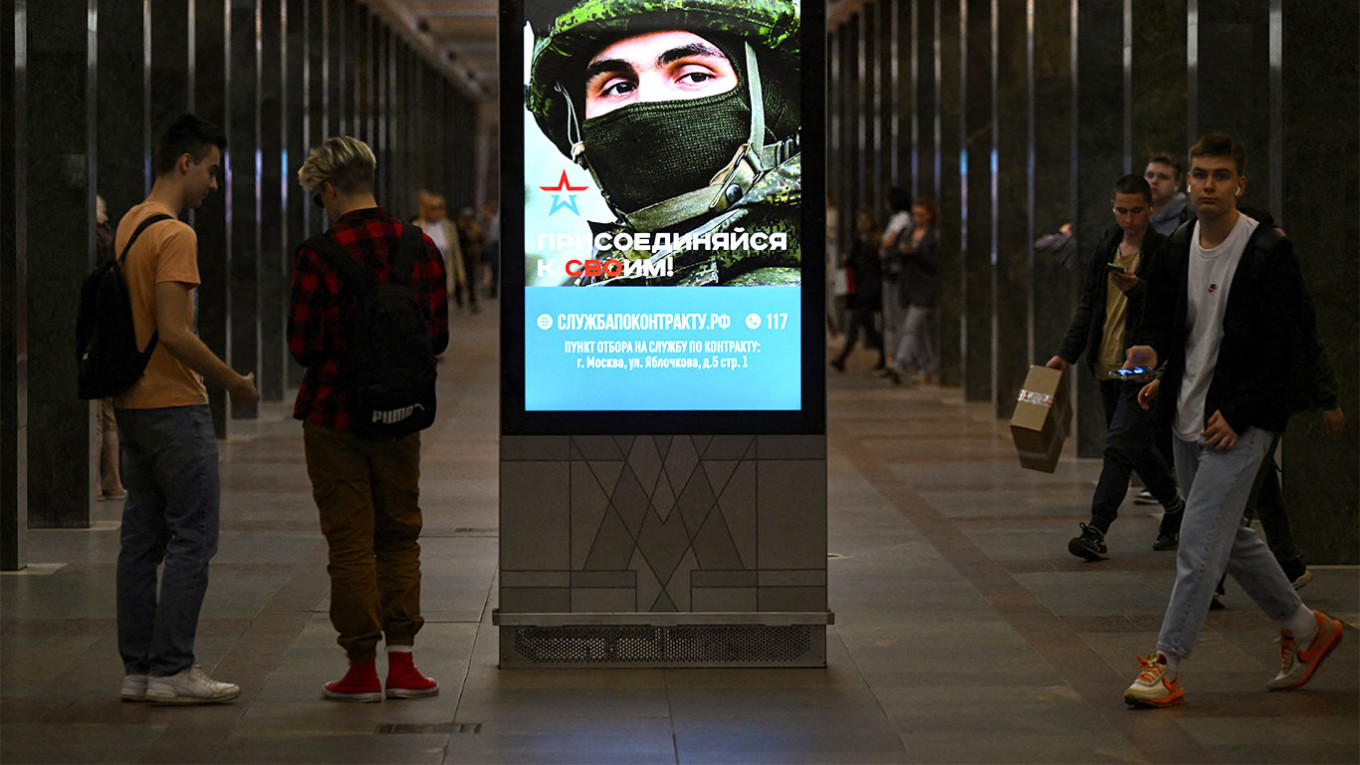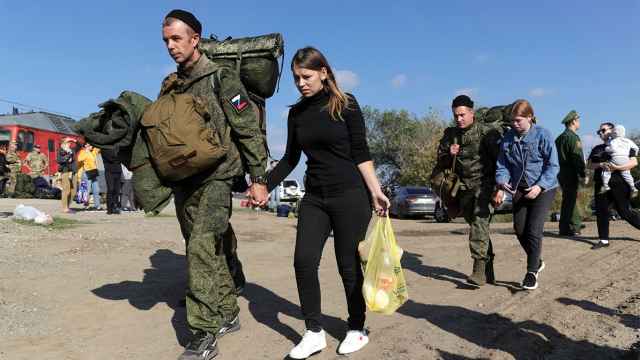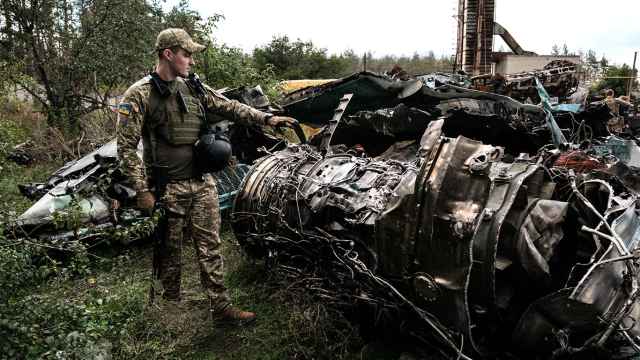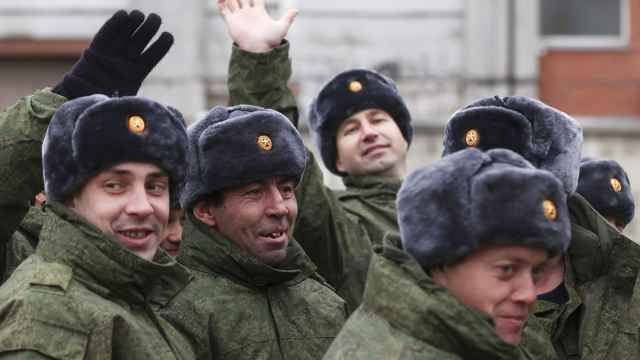MOSCOW – For Russians, avoiding the sight of army recruitment advertisements plastered on billboards and shop windows, distributed on street corners and flashed across television screens has become next to impossible in recent months.
Appealing to a sense of patriotism, concern about Russia’s future and traditional ideas of masculinity, the unprecedented recruitment campaign has also not been shy about promising military salaries that are well above the national average.
“Our job is to defend the motherland,” read one recruitment broсhure handed to a Moscow Times reporter last month in the Russian capital.
It pledged monthly payments of 204,000 rubles ($2,526) for soldiers plus bonuses for destroying or capturing enemy weapons and equipment.
The recruitment drive appears to be part of the Russian Armed Forces’ efforts to address a growing manpower shortage in Ukraine following unsuccessful spring attacks and ahead of what is believed to be an imminent counteroffensive by Kyiv’s forces.
While there is no publicly available data to gauge the recruitment campaign’s success, anecdotal evidence and experts interviewed by The Moscow Times suggested the number of soldiers who have signed up was likely far short of what the authorities were hoping.

Over three months after it began, the recruitment campaign is yet to “show any concrete results,” military analyst Pavel Luzin told The Moscow Times.
“The Russian army is experiencing a shortage of both soldiers, non-commissioned officers and officers.”
In Moscow, advertisements direct would-be soldiers to a heavily guarded military recruitment center on Yablochkova Street in the north of the city.
While the state-run TASS news agency reported in April that 300 people were joining up in Moscow every day, a Moscow Times reporter on a visit to Yablochkova Street last month counted just a dozen men entering the building over the course of an hour — suggesting the actual number of daily recruits was far lower.
Citing unidentified official sources, Bloomberg reported in March that the Kremlin was seeking to recruit 400,000 soldiers this year.
But at the current tempo of enlistment, the Kremlin is unlikely to come close to reaching that target.
Ex-President Dmitry Medvedev said last month that 117,000 men joined the Armed Forces in the first five-and-a-half months of the year — meaning that, if Bloomberg’s reporting is accurate, officials will only get half the men they were seeking.
Russia is increasingly in need of more soldiers for its war in Ukraine amid tens of thousands of men killed and injured and no sign of a let-up in the fighting.
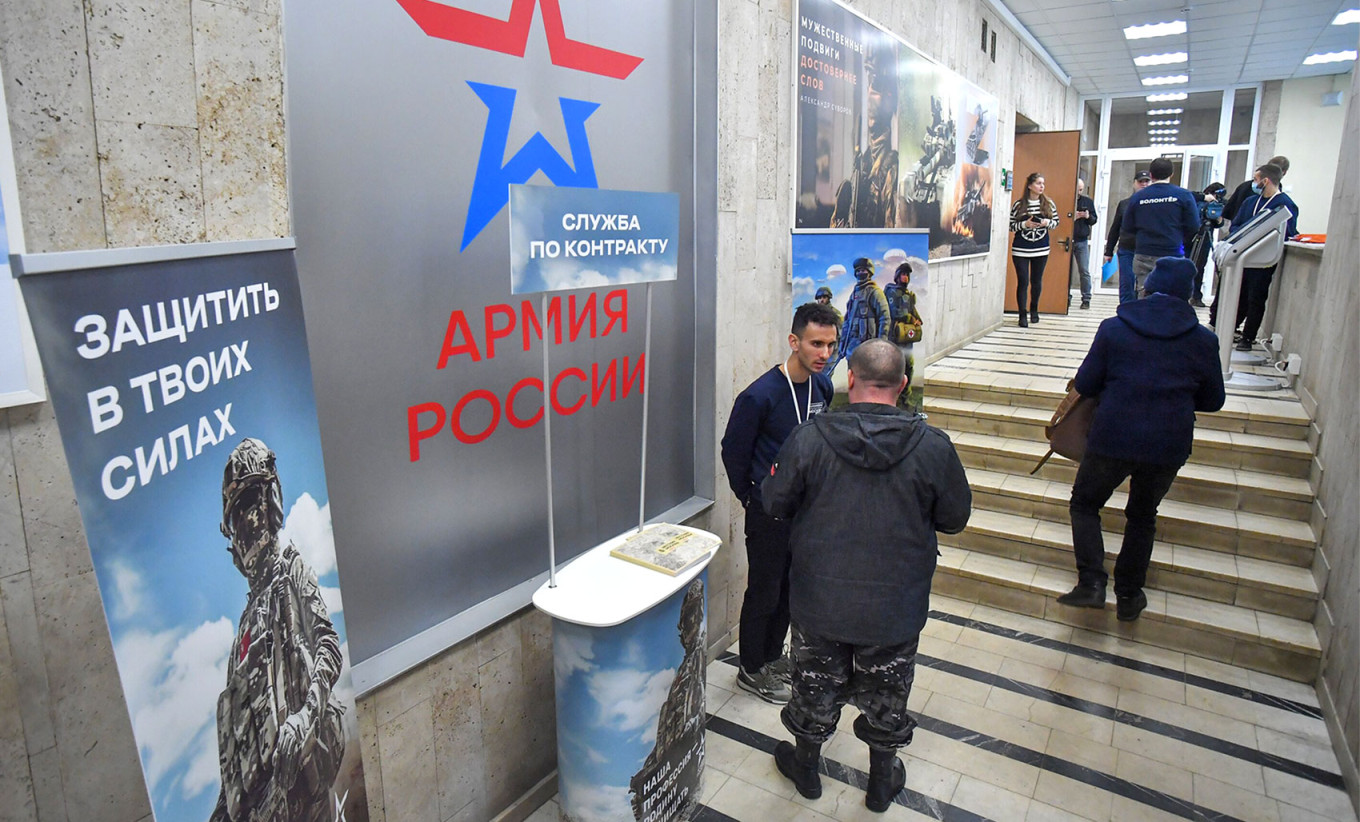
“First, they need to replace casualties. Second, they need to be able to rotate units otherwise the units on the frontlines eventually get exhausted,” military expert Michael Kofman said on the War on the Rocks podcast late last month.
Launched earlier this year, the largest army recruitment campaign to be attempted since the full-scale invasion of Ukraine began in February 2022, has been highly visible in towns and cities all over the country.
In Moscow, recruitment posters were even put up in shopping malls and in the windows of popular city center cafes and restaurants.
Two cafes on Moscow’s prestigious Pyatnitskaya Ulitsa that were displaying recruitment posters on their doors did not respond to a request for comment.
Recruitment videos have also been highly visible on state-run television channels and online, with Novaya Gazeta Europe reporting that tens of thousands of posts promoting the army appeared on Russian social media networks VKontakte and Odnoklassniki.
In particular, ideas of masculinity and male duty have been a common framing for the advertisements.
One viral video posted by the Defense Ministry in April showed a bodybuilder and a taxi driver in the army with a slogan saying "You're a real man! Be one!"

The message is that men can “fulfill their masculine role by bringing in money and fighting in the military,” Valerie Sperling, a political science professor at Clark University in the United States, told The Moscow Times.
“The reason why we see masculinity showing up in different kinds of advertisements — whether it's military recruitment or political advertisements — is because everybody understands it right away.”
In addition to advertising, Russian officials have reportedly been involved in promoting the campaign. Local businesses were contacted by city officials in St. Petersburg to encourage their workforce to consider signing up, the Fontanka news outlet reported last month.
There is no official information on the motivations of those who do decide to go to fight — or their age or military experience — but it is likely to be a mixture of ideological and material reasons.
“It's my duty,“ Andrei, a man from Siberia who was planning to join up, told The Moscow Times on condition of anonymity.
Local media outlets have published interviews with new recruits that have cited patriotism and worries about the fate of their country as reasons to go to fight in Ukraine.
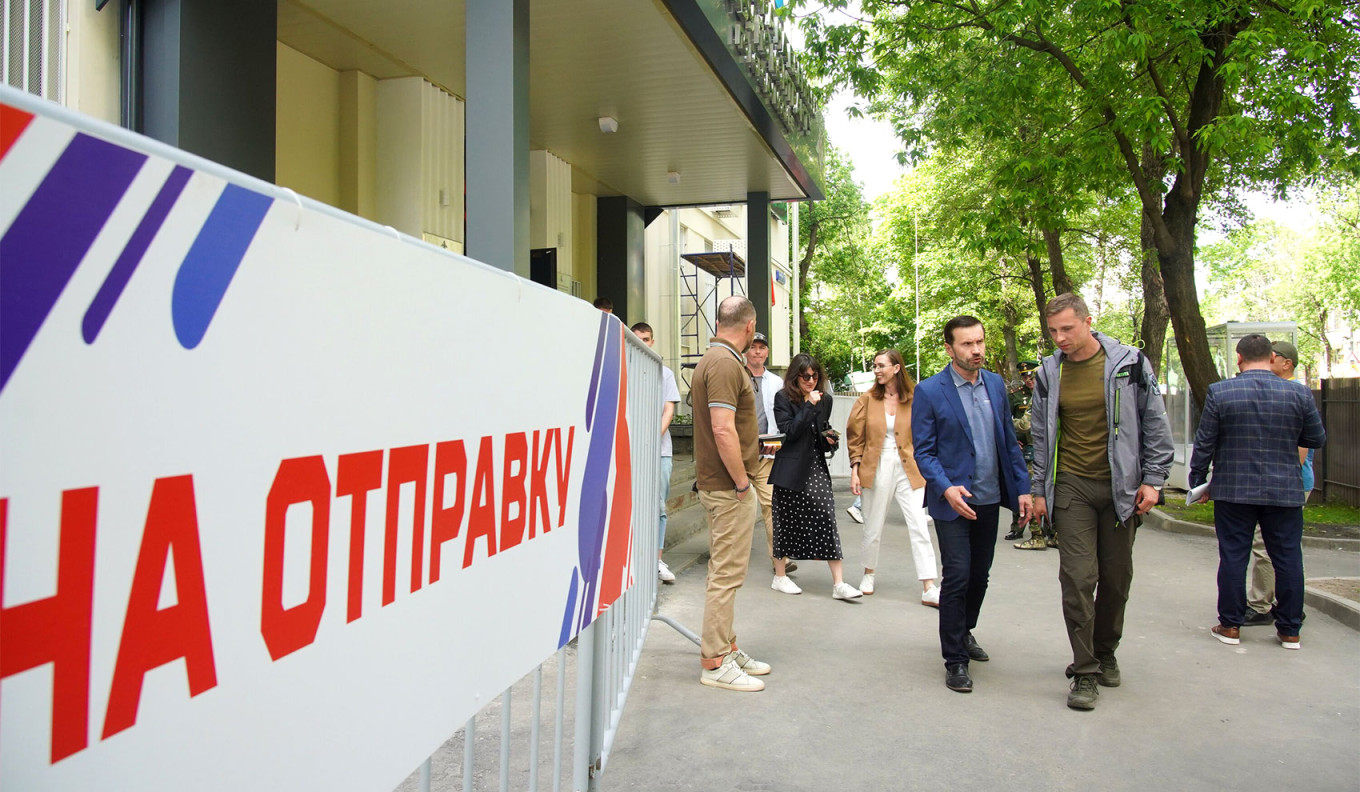
Many experts believe that the current campaign is a Kremlin attempt to avoid risking a major public backlash by launching another round of mobilization.
When a similar — albeit on a much smaller scale — recruitment campaign last summer failed to attract enough recruits to plug the army’s manpower problem, the Kremlin opted for a “partial” mobilization that saw about 300,000 men swept into the Armed Forces.
A successful Ukrainian counteroffensive could inflict heavy casualties on existing units, increasing the pressure for more men.
“My assumption is that this campaign won’t generate enough people,” said expert Kofman. “Ultimately they may have to conduct another mobilization.”
A Message from The Moscow Times:
Dear readers,
We are facing unprecedented challenges. Russia's Prosecutor General's Office has designated The Moscow Times as an "undesirable" organization, criminalizing our work and putting our staff at risk of prosecution. This follows our earlier unjust labeling as a "foreign agent."
These actions are direct attempts to silence independent journalism in Russia. The authorities claim our work "discredits the decisions of the Russian leadership." We see things differently: we strive to provide accurate, unbiased reporting on Russia.
We, the journalists of The Moscow Times, refuse to be silenced. But to continue our work, we need your help.
Your support, no matter how small, makes a world of difference. If you can, please support us monthly starting from just $2. It's quick to set up, and every contribution makes a significant impact.
By supporting The Moscow Times, you're defending open, independent journalism in the face of repression. Thank you for standing with us.
Remind me later.



